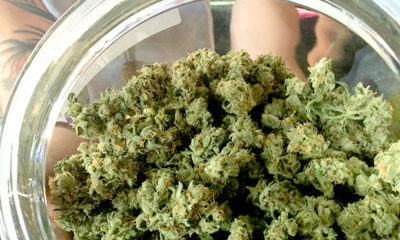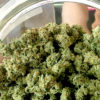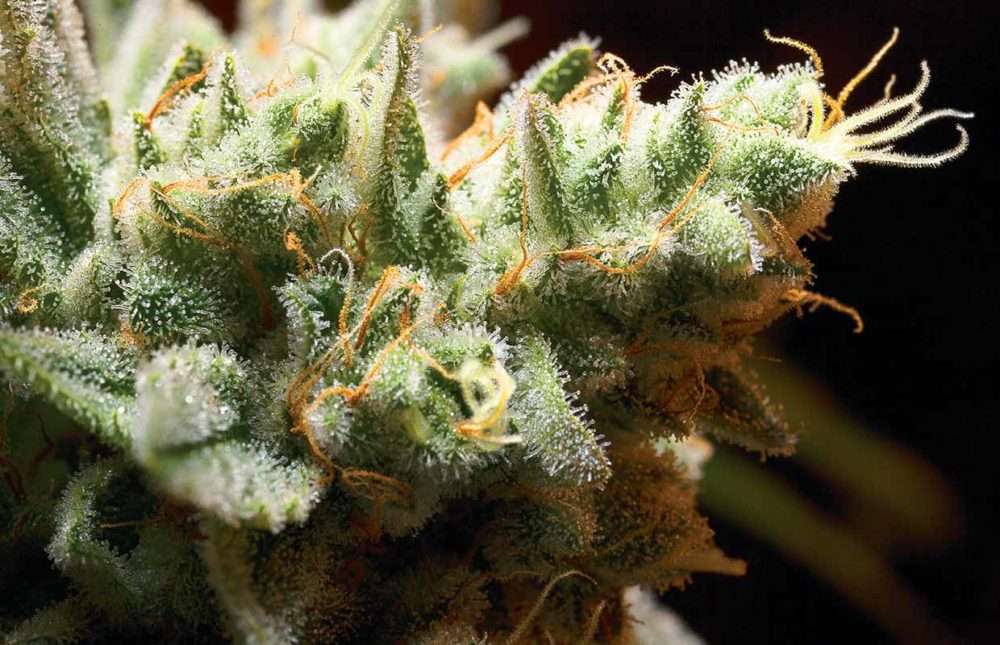Medical
Study: Cannabis Extracts Reduce Seizures
Photo courtesy of Drug Policy Alliance
A new study to be published the journal of Epilepsy & Behavior suggests that the administration of oral cannabis extracts, such as cannabidiol oil, is associated with the mitigation of seizures in children and adolescents that suffer from dangerous, treatment-resistant forms of epilepsy.
The study was published by researchers from the Colorado Children’s Hospital in Denver. The researchers performed a retrospective chart review in which they administered cannabis extracts to children and adolescents that suffer from rare forms of epilepsy known as Lennox-Gastaut syndrome and Dravet syndrome.
The study, which was released by the American Academy of Neurology, included a total of 213 patients – 75 of which were children – who were all administered a form of cannabidiol extract oil in order to test how it, if at all, it treated the dangerous seizures that their respective syndromes caused. Of the patients, 23 percent suffered from Dravet syndrome and 88.9 percent suffered from Lennox-Gastaut syndrome (some suffering from both simultaneously). The study refrained from using a placebo group in order to better study the different effects that the substance could have on a patient using it.
Lennox-Gastaut syndrome is commonly recognized as a form of epilepsy that causes what are known as ‘drop’ seizures, which can be violent and dangerous to those who suffer from them, especially young children.
The authors of the study reported that 57 percent of the subjects showed some amount of improvement in controlling their seizures, while around 33 percent admitted to a greater than 50 percent reduction in the number of seizures they suffered.
Additionally, the researchers found a number of alternative positive results in the patients. The study reports that 33 percent of the subjects reported improved behavior and alertness; 10 percent reported an improvement in language skills and abilities; and 10 percent reported an increase in overall motor skills.
“Pharmaceutical seizure medications have their own side effects, and some children don’t respond well to traditional treatment,”explains Dr. Angus Wilfong, a pediatric neurologist and investigator at Texas Children’s Hospital who was an investigator on the study, which was conducted at multiple locations around the world.
Wilfong sympathizes with the parents of the epileptic children who are looking to researchers like himself to help them and their children. Controlling the number of seizures that occur every day is a challenge, especially when some can suffer from up to a dozen every day.
Although this study does seem promising to the parents of these epileptic children, there is still more work and scientific study that has to be done before it can be outright stated that oral cannabis extracts are beneficial to the patients.
“Though the early results are promising, we still have a lot more to find out about cannabidiol, from the proper dosing regimens to which patients might benefit more than others. In this national climate of increased acceptance towards medical marijuana, it is crucial that scientifically-validated research, not policy, guides patient care,”claims Orrin Devinsky, director of New York University’s Langone Comprehensive Epilepsy Center and leader of the study itself.
Living with these types of epilepsy is quite dangerous for the patients, but there could be worse side effects to the treatments that have not yet been discovered due to a lack of long-term scientific testing on a number of differing types of epilepsy patients.
“Science needs to get done. It won’t be someone’s opinion. It will be fact. And we need facts, especially for the children,” said Wilfong. “Just because you’re desperate doesn’t mean you should be irresponsible.”
There have been several studies have been done on the effects of using oral cannabis extracts to treat pediatric epilepsy, such as the survey data compiled by researchers at Stanford University in 2013, yet there’s still more thorough scientific data that must be compiled and run through the proper scientific channels before they can be claimed to be completely medically valid.
The findings and further details of this new study were presented recently at the 67th annual Meeting of the American Academy of Neurology, which was held in Washington D.C. from April 18-25.
While these and other similar findings are adding to the amount that we know about the medicinal applications of marijuana and its various forms of extracts, there is still a lot that needs to be tried and tested in order to fully understand the complete span of their medical capabilities. But as the attitude towards the use of medical marijuana as treatment is slowly turning, there is more and more hope for those who wish to use it in order to help those who suffer from syndromes such as epilepsy.
Do you use oral cannabis extracts to manage your symptoms? Tell us about it below.
























